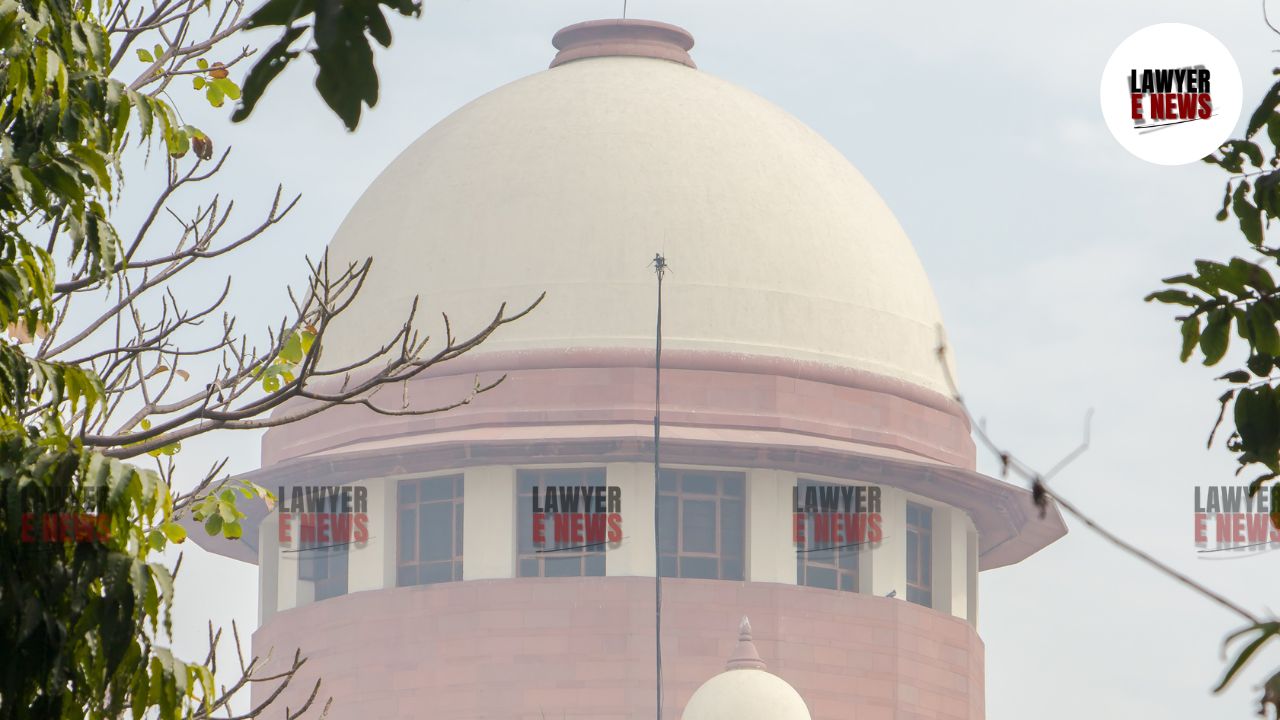-
by Admin
15 February 2026 5:01 PM



Supreme Court dismissed a Special Leave Petition challenging a High Court order that directed the executing court to deliver possession of a property to a decree-holder in a specific performance suit. The Supreme Court, upholding established legal principles, held that a decree of specific performance inherently includes the right to possession when exclusive possession is with the contracting party, even if the decree does not expressly state so.
The dispute arose from a suit for specific performance filed by the respondents (decree-holders) against the original owners of a property based on a sale agreement. The trial court decreed the suit in favor of the respondents, mandating specific performance of the contract. However, during the execution stage, the executing court declined to hand over possession to the decree-holders, citing the absence of an explicit order for possession in the decree.
The respondents challenged this decision before the High Court of Rajasthan. The High Court overturned the executing court’s order, holding that the decree of specific performance and the subsequent registration of the sale deed inherently included the right to possession. It directed the executing court to issue a warrant for possession. The petitioners, who were subsequent purchasers of the property, challenged this ruling before the Supreme Court.
Whether the executing court can grant possession to the decree-holder when the decree for specific performance does not explicitly order possession.
Whether possession rights are inherently included in a decree of specific performance under Section 55(1) of the Transfer of Property Act, 1882, and Section 22 of the Specific Relief Act, 1963.
The Supreme Court, affirming the High Court’s decision, relied on well-established legal principles from landmark judgments such as Babu Lal v. Hazari Lal Kishori Lal (1982) and Rohit Kochhar v. Vipul Infrastructure Developers Ltd. (2024).
The Court observed that when exclusive possession of a property is with the contracting party, a decree for specific performance inherently includes the right to possession, even if the decree does not explicitly state so. The Court cited Section 55(1) of the Transfer of Property Act, which binds the seller to deliver possession to the buyer upon execution of the sale deed.
“A decree for specific performance of the contract of sale simpliciter, without specifically providing for delivery of possession, may give complete relief to the decree-holder. This is in consonance with the provisions of Section 55(1) of the Transfer of Property Act, which provides that the seller is bound to give possession to the buyer upon execution of the sale deed.” [Para 13(a)]
The Court reaffirmed the principle laid down in Babu Lal, stating that under Section 22 of the Specific Relief Act, a decree-holder can seek possession during the execution stage to avoid multiplicity of proceedings. The Court emphasized that “execution is a stage in the legal proceedings,” and granting possession at this stage is consistent with the legislative intent.
“The legislature has given ample power to the court to allow amendment of the plaint at any stage, including the execution proceedings, to grant possession and avoid multiplicity of suits.” [Para 14]
The Court highlighted its recent judgment in Rohit Kochhar v. Vipul Infrastructure Developers Ltd. & Ors. (2024), where it reiterated that possession is inherently included in specific performance decrees unless explicitly excluded. The principles from Babu Lal were upheld, further clarifying the law on this subject.
The Supreme Court dismissed the Special Leave Petition, affirming the High Court’s order and holding that the decree-holder was entitled to possession as an implied right under the decree for specific performance. It concluded that the executing court was obligated to grant possession to give effect to the decree.
“In cases where exclusive possession of the suit property is with the contracting party, a decree for specific performance without an explicit order for possession provides complete relief to the decree-holder. The relief of possession can also be claimed during execution proceedings.” [Para 15]
The Court also clarified that the petitioners, as subsequent purchasers, could not contest the execution of the decree against the original defendants.
Implied Right to Possession: A decree for specific performance inherently includes the right to possession unless specifically excluded, especially when exclusive possession is with the contracting party.
Section 22 of the Specific Relief Act: Plaintiffs can seek possession at any stage of the proceedings, including execution, to avoid multiplicity of suits.
Subsequent Purchasers’ Rights: Purchasers who acquire property after the execution of a sale agreement cannot obstruct the execution of a decree for specific performance against the original defendants.
Judicial Oversight in Execution: Executing courts must ensure complete implementation of decrees, including delivery of possession, to prevent injustice to decree-holders.
The judgment reinforces the rights of decree-holders in specific performance cases, particularly regarding possession. It upholds the legislative intent to prevent multiplicity of proceedings and ensures that executing courts adhere to their obligations to deliver complete relief. This decision reaffirms the settled legal position that possession is an implied right in specific performance decrees and provides clarity for future cases involving similar issues.
Date of decision : December 6, 2024
